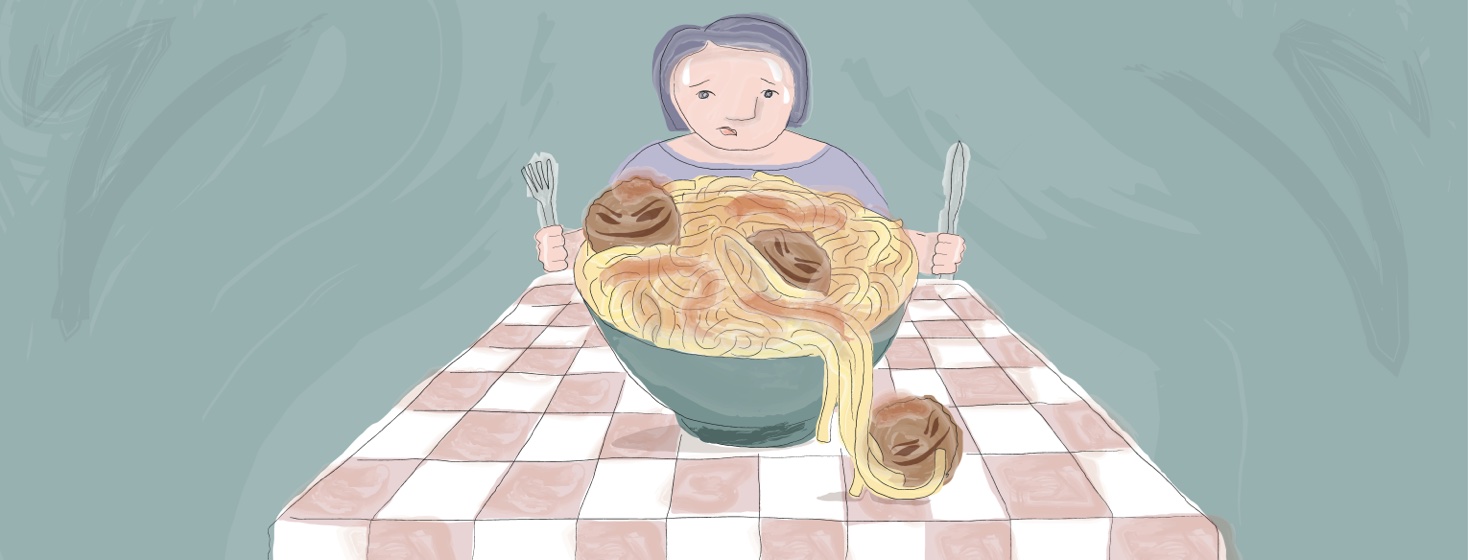To Eat, or Not to Eat? That Is the Question
People with inflammatory bowel disease often avoid eating certain things because they're worried about the aftermath.
I stopped eating altogether.
Back in 2007, just before my diagnosis, I stopped eating completely because the result was incredible pain, toilet trips, diarrhea, and blood in the toilet bowl. I wasn't doing much other than sleep, and I had started to associate food with increased pain.
The constant cycle of toilet trips and exhaustion
My mum went to the pharmacy and bought me a nutritional milkshake powder (which tasted awful). My symptoms continued, and after reading the back of the box, I concluded that it might have been the milk protein that was prolonging my symptoms, so I stopped drinking that too.
It's not like I felt hungry, I really didn't. All I felt was exhaustion. I didn't really even have the energy to worry about what was going on.
This constant cycle of toilet trips and sleep had gone on for 2 weeks before I realized that this wasn't just something that was going to pass. It was then that I went to the emergency room, was admitted, and then diagnosed.
Avoiding fiber due to miscommunication
I had surgery to remove my colon within the week and a temporary ileostomy. The advice I was given at the time was to limit fiber and avoid insoluble fiber, so I did.
I had that stoma for 2 years, and the entire time my diet was very limited. I peeled and deseeded tomatoes, grapes, cucumber, etc. Looking back, it seems ridiculous.
I now know that the low fiber diet should actually have been a recommendation for around 6 weeks post-surgery to let the intestine heal. I laugh now when I think about it, but I am also annoyed. I was too scared, or too lazy, to eat so many foods – the preparation of vegetables just seemed like too much effort a lot of the time.
More pain when eating after surgery
When I had my j-pouch connected, I was given better post-op diet advice. So, I did introduce new foods gradually, after everything had settled from the surgery.
I started to understand what different foods and drinks did in terms of my j-pouch function. For a short time, there wasn't much that I couldn't eat.
Then the pouchitis started, which really confused things. The same foods often didn't seem to have the same outcome, so I probably avoided more than I needed to just because I wasn’t sure! Then came the additional pain in my lower left abdomen.
I made a food diary and linked the pain to insoluble fiber. Over time, I seemed to have issues with more and more foods. Eventually, even liquids were causing pain.
I think I only had to deal with that for a couple of months until they identified the strictures in my intestine; 1 long and 1 short right next to it. That resulted in emergency surgery, and then I had a brief period of feeling well before pouchitis arrived again!
Wondering if I should I eat something
I recently wrote a blog around this same topic, why did I eat that? In that blog, I discussed my mindset in which I weighed up the pros and cons of certain foods and whether I was going to be at home near the toilet and with access to additional pain medication if needed. That's the thing, people with IBD who have issues with certain foods will often find themselves pondering, "Should I eat it, or not?"
A few weeks ago, I was asking myself the same question. I stood in the kitchen holding an apple for a good 10 minutes before deciding not to peel it. I thought I would be brave and try it with the skin on because I haven't had a lot of issues with my current stoma and insoluble fiber - if I chew thoroughly enough.
The expectation was that if apple skin wasn't okay, I’d just experience some pain. I do get pain from some insoluble fiber anyway, but not enough to prevent me from eating it. I know the benefits of fruits and vegetables, plus, I really enjoy them!
A blockage after eating apple skin
Being "brave" caused a blockage.
That apple skin resulted in a blockage. I think it was actually the most painful one that I've ever had. It incapacitated me! It was really low down which meant that any movement of my abdomen or the lower half of my body felt impossible like my intestine was going to rupture – which is a real possibility!
This is why we question whether we should eat something or not. Sometimes, the outcome is actually worse than expected.
Avoiding food is not good for me
Personally, I'm generally better if I eat little and often. Avoiding food is not good for me, no matter how much pain I might be in at the time. If I don't eat regularly, it gives time for the gas to build up in my intestine, which causes a lot of pain!
What you can and can't tolerate is always going to depend on what your symptoms are, and what the cause of those symptoms is. IBD definitely does make food feel complicated, doesn’t it?!

Join the conversation